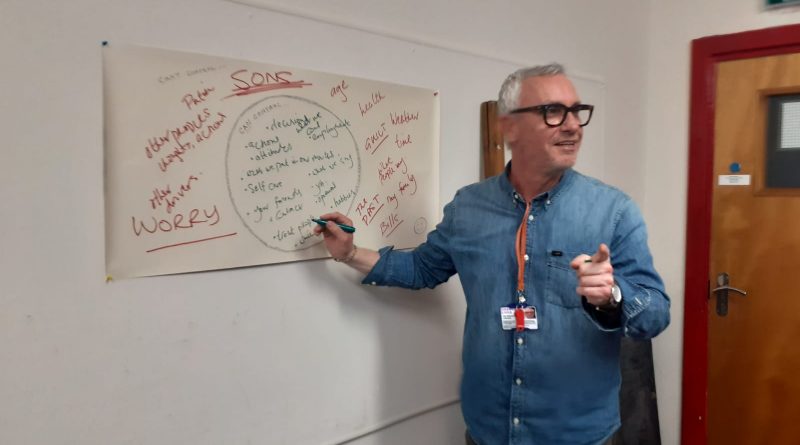Volunteers Week 2023
Introducing Guy, for Volunteers Week 2023!
Guy is a trained SMART facilitator and runs the Richmond SMART group every Thursday at 6pm, at Richmond Methodist Church. SMART stands for Self-Management-and-Recovery-Training and is a structured peer support group offering practical tips, tools and advice to assist in maintaining recovery. Thanks to Guy, the Richmond SMART group is now a really well-established, very popular, welcoming and friendly bunch of people.
Thank you, Guy, for all the support you have offered so many people who have attended and continue to attend the Richmond group! We appreciate all your hard work and couldn’t have gotten it set up without you!
Have a read below to find out about Guy’s journey through his own recovery, and how he got to where he is today:
“I’m Guy Spencer and I’ve been volunteering with Horizons since 2020.
I had been a lifelong heavy drinker having my first sustained exposure to alcohol aged about 8. It wasn’t until after university that regular, day in-day out drinking started to characterise me to my friends, family and work colleagues which was playful at first but over time became the heavy iron chain of habit taking all of my time, energy and money. Living in London, all through my twenties, thirties and forties I drank until drunk and never gave myself even a single day of respite over those years. Given how much I drank and how regularly and how I ended up in numerous dangerous situations, I’m surprised that no lasting medical damage was done or that I wasn’t spending time in hospital or prison.
In my late forties my closest friends lost faith and told me I had a problem before I was prepared to acknowledge it and although I tried AA and knew changes needed to be made, I was resistant because I was still functioning ‘okay’.
Having moved out of London then living in a chocolate box cottage in the Sussex countryside it all changed when my girlfriend told me to leave. I had no options and I had no one else to help me. Then followed an awful period of upheaval relocating to my dad’s house in Catterick Village in 2018. Because of this my drinking then became very destructive and angry. The withdrawal became so bad that I had to drink as soon as I woke up to ‘get a level’ which would then last until I was drunk enough to sleep, although because of my tolerance to 6% cider I never felt particularly drunk. My time clock regularly slipped round so that I was asleep in the day and awake all night sucking back more and more cider.
At this point my MD referred me to Horizons and at this point my story began to change. Ruth came to meet me at home and we started to work together. At that stage there was no way I could image a dry future but being in such a desperate situation I knew that something had to change. The more I stuck to The Plan I started to realise that I was beginning to change like a caterpillar to a butterfly.
I started to attend my local SMART group in Richmond and because of the peer support I realised the CBT / ReBT model worked well and in time sober days were strung together to make a week here and a week there. Where I derived enormous comfort was that other people like me were experiencing the same thing and that we could support each other in a group. The more time that goes on I really understand that methods of Peer support are vital to people being successful in their recovery. The ability to learn useful hacks and techniques is key but more than that is the ability to support other people mutually. Recovery from substance misuse has a slightly magical , ephemeral quality and this power is amplified in the context of a group of humans supporting each other.
Last year after Covid settled down I worked with Poppy, Ruth and the Horizons team to re establish the lapsed SMART group in Richmond where we have really excellent people coming along on Thursday evenings. We would have a cuppa and a Twirl ready for you, if you’d like to come along.
I love volunteering with Horizons and would recommend anyone to do it. It helps keep focus on your own recovery, moves you along the pipeline but most importantly gets you supporting others. It keeps your own recovery in check but develops your skills so that you start to become a better version of yourself.”
